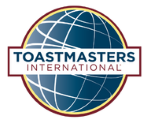The Encouragement Leadership Role
The leader establishes a system of rewards and support that encourages and enables the organisation’s members. Although money is certainly a strong incentive for workers, it may often be less important to them than less tangible rewards and support.
The encouragement role involves three specific areas of leadership action:
Recognition
The leader praises individuals and work teams who meet or exceed expectations in the organization.
Reward Incentives
The leader defines and distributes rewards that are meaningful to their recipients.
Support
The leader devotes part of the organisation’s resources to support the work activities of its members.
The Information Leadership Role
Finally the leader sets up and maintains an information network that provides both internal and external communication channels.
The information role consists of the following five categories:
Communication Design
The leader oversees the design and maintenance of an information system that serves the needs of the organization in attaining its mission.
Monitoring
The leader keeps a finger on the pulse of important information sources for early warning of problems and occasions to seize opportunities.
Informing
The leader provides stakeholders in the organization with the information they need to best serve the organisation’s interest.
Consulting
The leader seeks out the best expert counsel inside and outside the organization.
Mentoring
The leader encourages learning at all levels within the organization.
Leadership Tips
- Exercise the vision role by words and actions that keep an inspiring, believable future scenario clearly in the minds of organisation members.
- Fulfill the relationship role by nurturing teams, networks and other interpersonal connections that advance the mission of the organization.
- Use the control role not to take all tasks and responsibilities onto yourself, but instead to take charge of the process by which problems are defined, decisions are made, and work is structured.
- Practice the encouragement role by praising, rewarding, and supporting the actions that contribute best to the mission of the organization.
- Perform the information role by making sure that all stakeholders in the organization are aware and understand through open communication channels.
While leaders are made, not born, however, in order to be an outstanding, effective and respectable leader, one will need to have the strong desire and willpower. Great leaders never admit that they’ve learned enough. In fact, they know they can never learn enough!
And that’s why all great leaders develop themselves through the never ending process of self-reflection, training and education. They know how to make use of their experience and knowledge to lead, guide, consult, mentor and communicate with their followers, to get them to recognize the objective and bring together to move towards a single goal…
Being a highly renowned international trainer, speaker, entrepreneur and a community leader, Ernest Chen has coached, inspired and motivated thousands of people (and counting) in the area of public speaking in Singapore…
Not only is he a Distinguished Toastmaster, a title conferred to him in 1993, a certified trainer and speaker, Ernest is also a Certified Teacher of Entrepreneurship.
Helping out in the community is part of Ernest’s life. He has devoted almost thirty years to helping the needy and the underprivileged. Ernest is aware that he cannot do everything, but he can do something and he will certainly do all the things that he is able to do.
For more information about his Singapore’s public speaking training programs, you can visit his website atwww.EarnestlySpeaking.com








